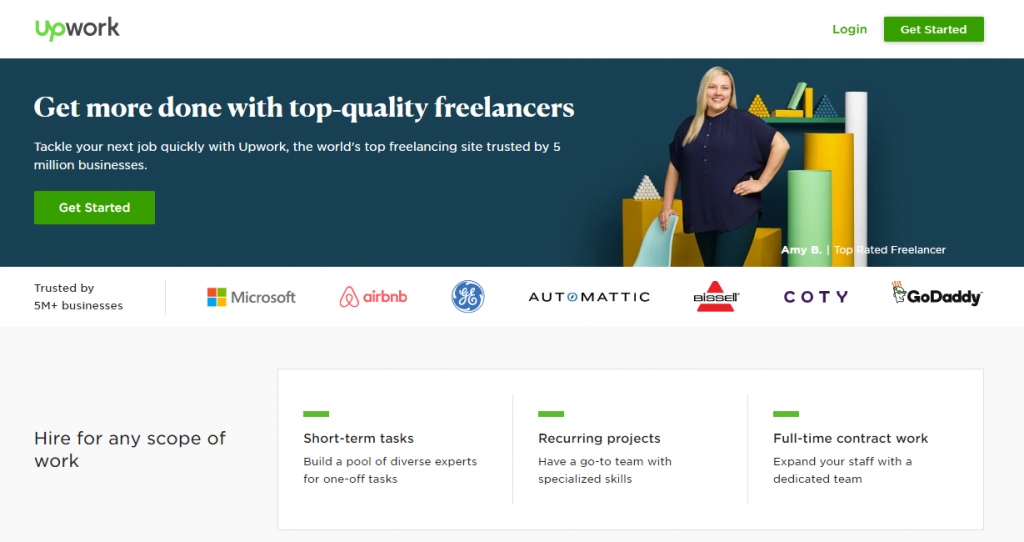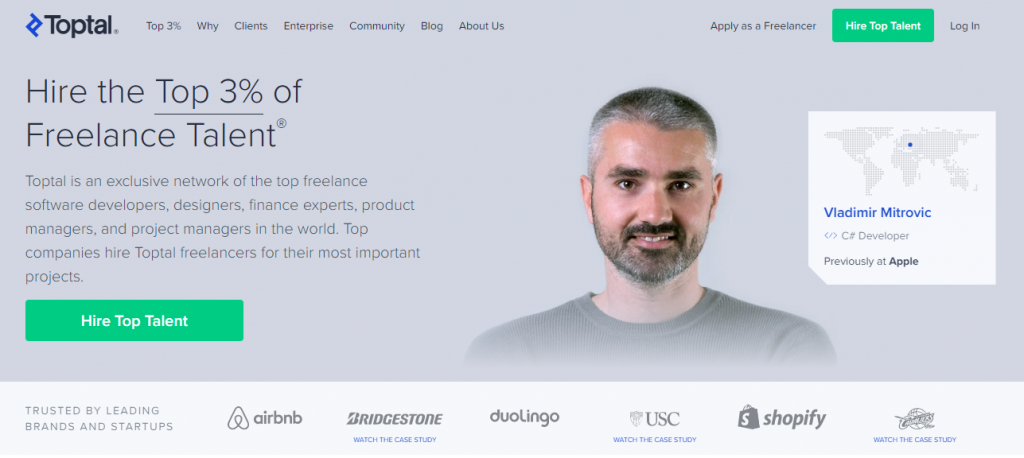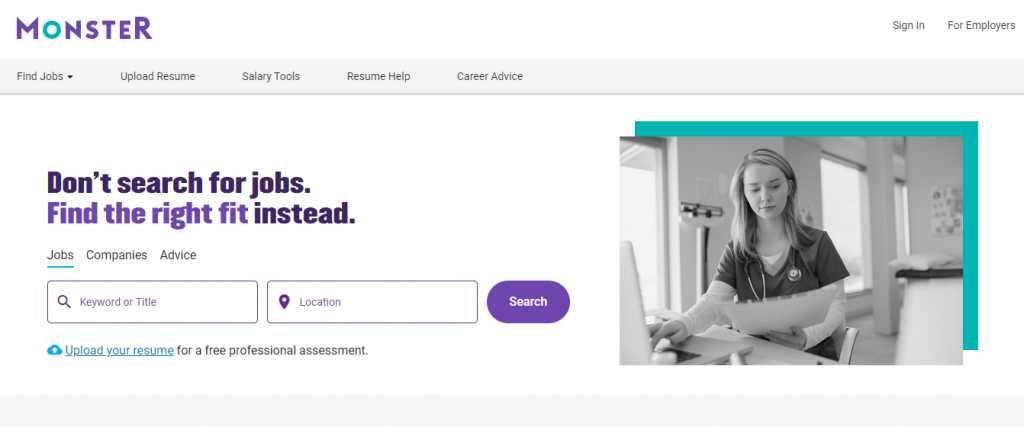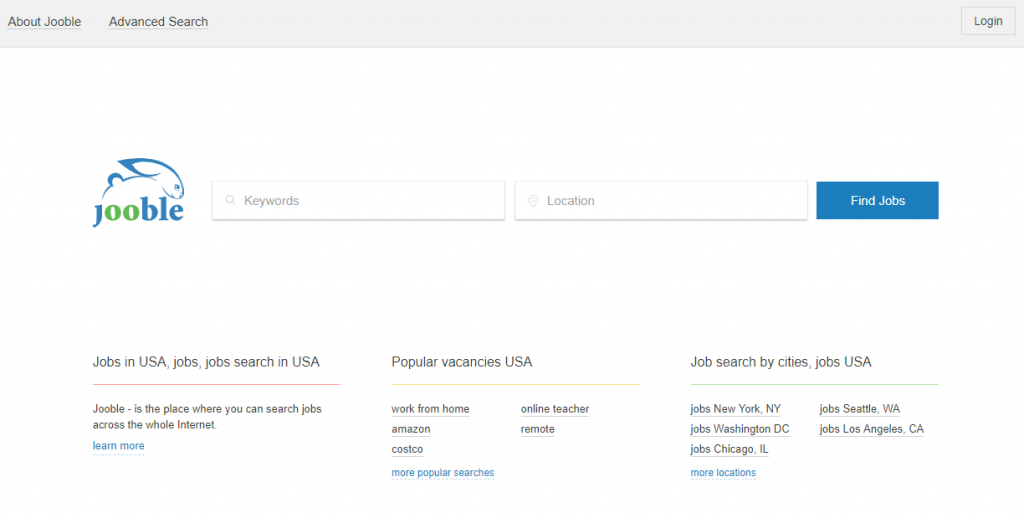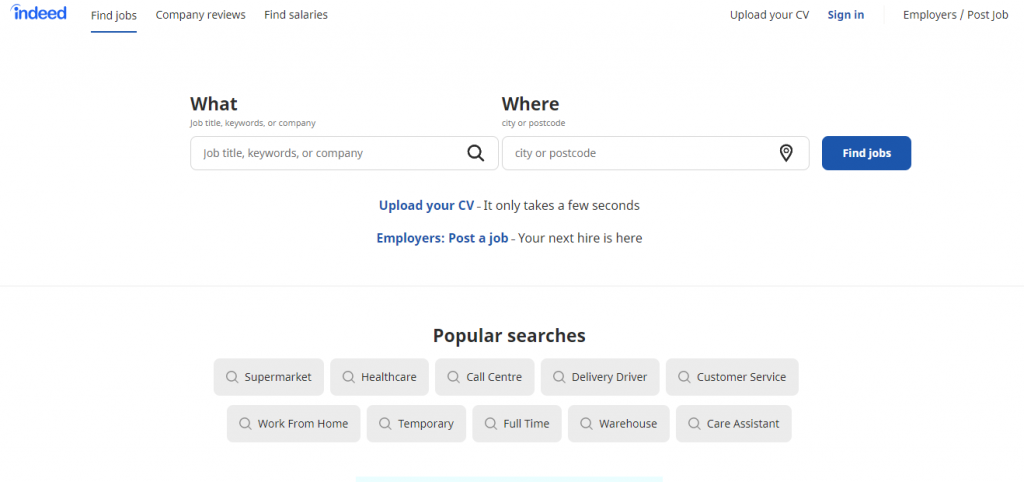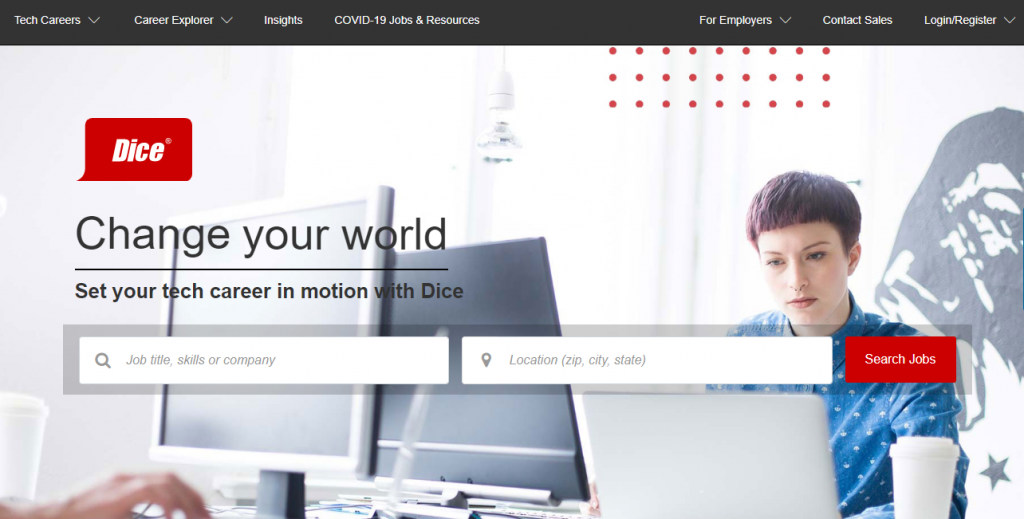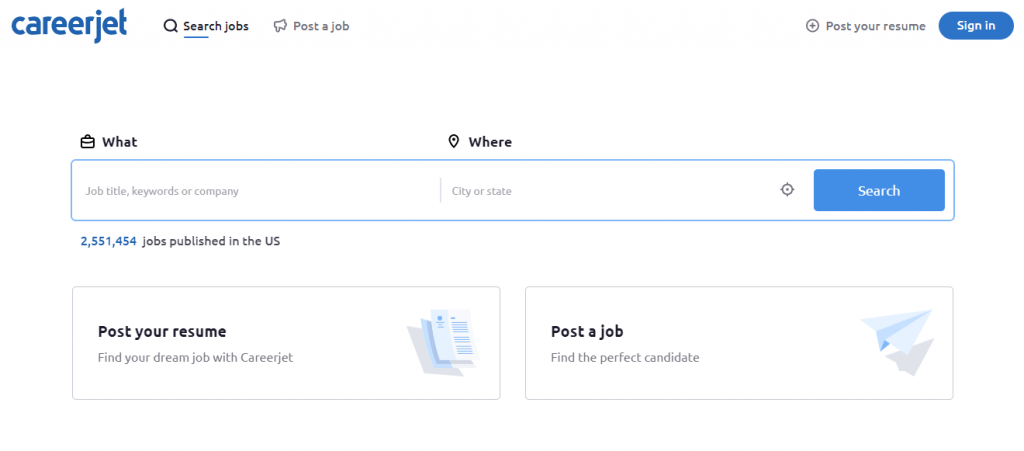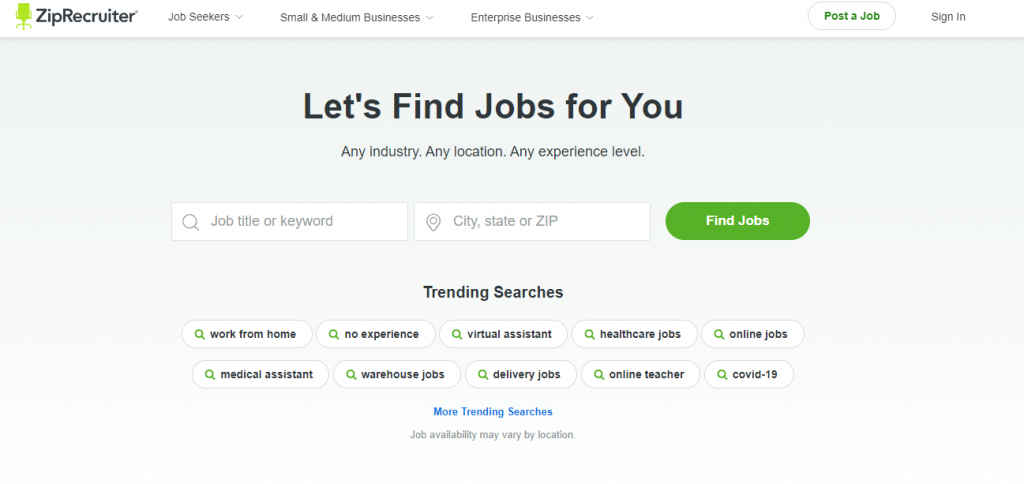Table of content
The key benefits Angular offers to clients and programmers alike include declarative templates, hassle-free dependency injection, and end-to-end tooling, enabling robust web and mobile product creation. Thus, many clients are looking for Angular developers for hire to jumpstart their projects and stay tuned to the technological innovation in business.
Given such considerable demand for such specialists, this article reviews the complete step-by-step process you may use instantly. You’ll learn the 8 key steps to prepare for hiring, the ins and outs of interviewing them, and platforms on which it’s easier to find qualified developers.
We also cover the rates that Angular coders charge in different countries and explain why hiring a programmer in Ukraine is a wise step.
Read on to learn the ropes of quick and affordable hiring of Angular development talent.
How to Hire Angular Developers Efficiently?
Keep in mind that finding the proper talent is not that easy. So, you may need to go through a couple of steps to locate the best match for your project with a proper qualification:
1. Prepare the project description
Once you realize the need to hire web developers for your project, finding the best match for the project is impossible without a clear project description. By outlining all critical points of the project, you gain a better idea of what developer expertise you need.
At the same time, the job candidates also get a checklist to see whether they possess the necessary expertise to participate in your project and where the project is interesting for them.
2. Determine the hiring model
There are distinct approaches to choose from, depending on the number of developers you need, the budget of your project, its length, and the need to hire full-time versus part-time.
You may choose from outsourcing, outstaffing, independent hiring, or hiring with the help of a vendor. To learn more information about each of them, check out our extensive guide on various types of IT outsourcing. To choose the hiring model wisely, first, analyze your project requirements and produce an estimate of the time required for development.
3. Analyze the need for developer staffing
Estimates of the workload your project requires can shed light on the number of software engineers you need to hire to get it done.
For instance, your project may take 6 months if you hire 1-2 developers, but the product may be launched in 3 months in case you get 3-4 people in a team. Besides, you should take into account that an Angular front-end coder won’t be able to do the back-end part of your project.
Thus, it’s better either to plan for the recruitment of front-end and back-end programmers or to look for full-stack ones to handle all aspects of the development plan.
4. Compile the list of requirements for candidates
Hiring a dedicated Angularjs developer of your dream is impossible in case you have no idea of the competencies they should possess. To be clear about the candidate your project requires, you should develop a full list of core and additional competencies you’re looking for in the Angular coder for hire.
This list will help you weed out the unsuitable candidates at once without wasting time interviewing people that just don’t fit.
5. Determine the hiring approach
At this stage, you need to decide how you’ll go ahead with the hiring process – on your own or with the help and guidance of an outsourcing vendor. Hiring independently suits companies that are not in a hurry, while hiring with a vendor saves the time and effort that you typically spend on finding the resume databases, scanning the suitable variants, contacting the candidates to schedule interviews, and sorting out the most suitable developers.
If you still decide to go on with hiring on your own, first find the job search websites. Be careful at this stage as some platforms are “dead,” with non-existent candidates or outdated resumes downloaded from other websites years ago. Some websites are paid, while others are free, so scan the market first to choose a reliable platform with relevant resumes.
If you want to outsource the hiring process, choose an IT staffing provider. Make your choice after thorough market research depending on the convenient location, a suitable time zone, English-language proficiency of the vendor’s staff, and the company’s pricing policy.
6. Compile the database of candidates
To hire Angular coders, you first need to sort out the most relevant resumes to contact the candidates and perform more detailed screening.
With a vendor:
You receive a candidate database carefully selected by professional recruiters. The resumes included in it are already thoroughly checked, with pre-screening interviews conducted to ensure that the candidates really exist and are actively looking for a job.
As a result, you get a list of candidates ready for an interview with you. Typically you get the first candidates within 1-2 weeks depending on how complex your job description is.
On your own:
To hire Angular js programmers, you publish a vacancy on the selected recruitment and job search platforms and wait for the candidate responses to it.
After that, you look through all candidates’ resumes on your own and hold the initial interviews. The process is lengthier, taking up to several months.
7. Hold job interviews
Interviewing the candidates who passed the initial stage of recruitment is your next step. A personal meeting or an online interview is critical for a personal acquaintance with the candidate, enabling the employer to verify their expertise and test some critical hard and soft skills before employing a person.
With a vendor:
Recruiters will select the convenient schedule for you and the candidates, while the only thing you need to do is prepare the questions and attend the online or face-to-face interview. Some clients prefer coming to the vendor’s office for the interview. At Devox Software, clients can attend the interview meetings personally, coming to see how we work and make a personal acquaintance with your recruiters and job candidates.
On your own:
You hold all negotiations with the candidates on your own and schedule all interviews as well. Such communication may take much working time, especially if you have many candidates, even in the final stages of the recruitment process.
8. Get a new team member
Employing the best candidate after a series of interviews and practical testing is the culmination of the recruitment process. It involves some administrative hassle, such as concluding a contract, officially registering the new worker in your company’s staff, preparing all documentation on taxes and payroll, etc.
With a vendor:
The hiring process is convenient as the Angular programmer you hire actually becomes the vendor’s employee, with the vendor assuming all responsibility for their official employment, payroll, taxes, equipping their working place, and provision of the required software and hardware.
The only responsibility of the client is to conduct onboarding, introduce the new staff to the in-house team, and grant access to internal systems required for the continuous development process.
On your own:
You prepare all documentation, buy the new computer, hardware, and software needed for the coder to conduct operations in your office, and complete the official registration of the new employee, with all tax deductions and payroll procedures. This approach may involve additional costs.
How to Interview Angular Developers?
The process of interviewing is a pivotal point in any recruitment process because it helps you establish the candidate’s level of expertise, verify their professional knowledge, test them in practice, and find out how solid their soft and hard skills are.
In other words, it’s your first face-to-face (or online) encounter with your potential future employee, enabling you to check whether you click together or not. Thus, make sure to prepare a comprehensive list of Angular developer interview questions to be on firm ground and find out everything you want to make an informed decision about the candidate’s employment.
What Should an Angular Developer Know?
Angular is an immensely popular framework on which a lion’s share of all apps is currently created, but the developers’ talents and level of expertise vary. Thus, to make sure that you’re on the same page with the job candidate and to hire exactly the programmer you need, first find out whether they possess the skills your project requires.
It’s good for the software engineer to possess the fundamental web development skills, such as mastery of HTML, CSS, and JavaScript, along with practical experience with libraries and toolkits like Jasmine and Karma.
However, alongside general skills, an Angular developer should still be competent in Angular first of all. Thus, when you’re designing the interview questions for Angularjs developer, keep these fundamentals in mind:
- Competent structuring of Angular modules;
- Knowledge of one-way and two-way binding approaches to data flow;
- Mastery of Angular directives (attribute, structural) and patterns;
- Handling of the Angular component life cycles;
- Knowledge of Angular observables;
- The distinction between smart and dumb Angular components;
- Binding features of Angular (property binding, event binding, passing constants);
- Construction of smart forms and their validation in conjunction with CSS;
- Competent use of route guards and access security;
- Design of Angular custom pipes.
Now that you know what to check, you may probably need the actual questions to ask Angular developer. We’ve done some homework to help you design a flexible and relevant interview protocol to find out whether your candidate is the right match.
Junior-level questions:
- Can you give an example of a simple HTML document with header information and page content?
- What is the CSS box model? Can you create some simple code snippers to exemplify it?
- How do you change the HTML element’s style in JavaScript?
- Give examples of the basic syntax of a Decorator in Angular.
- Can you name the essential components of an Angular app?
Middle-level questions:
- When do you use Core and Shared modules?
- How do you implement the lazy loading of modules?
- How do you ensure the security of your Angular app?
- What are the distinctions between unit and end-to-end testing? When is each of them more applicable?
- What debugging tools do you use to fix issues with your apps?
Senior-level questions:
- What modules are required for importing in Angular to use the [(ngModel)] and reactive forms?
- What are the differences and similarities between AngularJS and Angular 2?
- What are the distinctions between different Angular versions (2, 4-6)?
- Can you give examples of your use of HTTP interceptors?
- Which change detection strategies do you know, and when do you use them?
Ekaterina Yakubovskaya, an Angular developer at Devox Software, explains how she conducts technical interview:
At first, I try to find out the candidates’ work experience, the positions they occupied in the previous teams. Thus, I understand the seniority level of the candidate and decide how to go on with the technical interview.
I start with general questions. For our company, direct communication with the client is an asset, so I inquire about this first. I also add a couple of questions about collaboration with colleagues (e.g., designers, back-end specialists, testers) to find out whether the candidate worked in cross-functional teams and how tasks were distributed.For the technical part, my top priorities are:
- interaction of components (everything related to components, what they are, what the directive is, what a module is, and so on based on these guiding questions);
- dependency injection (what it is, why it is needed, its lifecycle);
- routing (of guards, resolvers, events);
- Observable (RxJs is a library for working with Observable, and I always ask questions about it and its methods).
Sometimes I also ask how the template gets updates about the ts code changes and how the programmer can affect this.
Depending on the answers’ adequacy, I can ask about architecture solutions, about presentational and smart components, when and where it’s best to use them. I also ask candidates to define shared components and shared modules and ask whether the shared ones are better than several separate ones.
I also try to inquire a bit about website layout to find out whether the candidates are familiar with Material, Bootstrap, or Angular Bootstrap. A small block of questions regarding styles and their use goes at the end of the interview, for example, what is better – Flex or Grid, which CSS frameworks candidate has used and what the concept of adaptivity together with its practical implementation is.
At Devox Software, we usually test the candidates not only for hard skills but also for soft skills and competencies. Only by looking at the latter, one can determine whether the candidate will integrate into the team and the company well. We conduct the initial interview with a professional recruiter.
At the same time, the client should still formulate a set of questions to check whether their values match with those of the candidate, whether it will be convenient to work with such a person, and whether the candidate’s mindset suits that of the client.
Yanina Khokhlova, a Head Of Recruitment at Devox Software, tells about the hiring process in the company:
We thoroughly check all candidates to our teams, whether it’s outsourcing or outstaffing. Our interviewing process takes place in 4 stages – resume selection, an interview with a recruiter, a technical interview, and an interview with top managers.
We first look through the candidates’ CVs. It’s imperative that the candidate has practical experience with Angular 2 and upwards. Ideally, they should possess expertise with Angular 5. After that, we hold a pre-screening interview to determine the tasks and teams with which the candidate dealt. It’s important to understand whether the candidate used to work in an office or on a freelance basis, with or without the PM’s guidance, who the team consisted of, and how communication with the client was organized – via a PM or directly.
Part of the interview takes place in English; we place English-language proficiency as a priority as, in most cases, our team communicates with the English-speaking clients directly. Clients also often come to our office to onboard their teams and make personal acquaintances with team members.
Afterward, we schedule a technical interview. Once it is successfully completed, we appoint the final interview with top managers to identify the candidate’s cultural values. I always point out that at the managerial interview, it’s critical to find out whether the company can provide the environment and development opportunities the candidate seeks. This can be clarified by asking them to answer the following questions:
- What are your current goals?
- What projects would you like to work on?
- How do you see ideal conditions for your development and growth?
- If you had two job offers with a similar salary, what aspects would you consider when making the final choice?
Where to Find Angular Web Developers?
If you decide to find web developers for your project, the principal issue to decide on is the method of hiring. There are numerous options to explore, each coming with its pluses and minuses.
Independent recruitment
This method of hiring is convenient only for companies having their own recruiters as all the database search, resume sorting, and interviewing work will be done inside the company. The method is time-consuming, so think twice before embarking on this task on your own. The goal may become unattainable if you don’t have enough time or resources for managing the entire recruitment lifecycle.
Job search websites
The most common decision employers resort to is the search for resumes or vacancy publication on job search websites. Keep in mind that most of the websites of this kind are paid, and you’ll have to subscribe for membership or pay a one-time fee to get access to the candidates’ resumes. All the rest, meaning the resume selection, pre-screening, and interviewing, will also be conducted on your own.
Freelance platforms
An easier alternative is to publish a project on a freelance platform where developers from across the globe will apply for it. The option is beneficial in terms of a simpler workflow – you publish a project, review the resumes of candidates, and award the project to the best match. But such a method also conceals many underwater stones, such as hardship with combining individual freelancers in a team, managing the project communication, and controlling for quality. Besides, this approach is not quite suitable for long-term projects as you have to pay for the platform’s service and have no direct contact with your employee.
LinkedIn search is a productive approach to building a resume database, including available web developers for hire. This social network has a solid reputation for professional profiles and no junk content, so you’ll find the proper talent easily. But LinkedIn also has premium membership fees for those who need access to other members; otherwise, you’ll need to wait for the users’ responses and confirmation of links to send them a message. Thus, the recruitment process may get too lengthy. In addition, you cannot post a Linkedin vacancy for free.
Recruitment agencies
Getting the assistance of recruitment agencies may save you the trouble of verifying dozens of resumes you’ve found online and sorting them out. Professional recruiters can do the job for you, contacting the programmers, verifying their availability and expertise, and delivering a shortlist of the most suitable resumes for your final interviewing.
Outsourcing vendors
Outsourcing your Angular project is the easiest and most convenient method of getting the job done without expanding your in-house staff and without wasting time and money on setting up the software/hardware for your new employees. Outsourcing providers can quickly hire an Angularjs developer offshore for you, jumpstarting your project and minimizing its time to market.
If you decide to proceed with independent recruitment, the following list of useful resources for finding talent may be highly useful for your first steps. It mostly includes job search websites and freelance platforms where programmers hang out. Thus, you may get access to the global Angular talent and choose the programmer fitting your project ideally.
Upwork
Upwork is the world’s largest freelancing platform on which you can find Angular professionals from 170+ countries. Project posting is free, while payments to coders are flexible, either on a project basis or per hour. Millions of users praise the simplicity and cost-effectiveness of Upwork, so you should definitely try it out if you need a freelancer for hire.
Toptal
Toptal boasts of the stringent selection of top professionals for hire, promising that if you recruit staff with it, you get the top 3% of freelance talent to your team. The Toptal database includes job seekers from 100+ countries and contains a broad spectrum of specialists, including developers, designers, finance experts, project managers, etc. So, here you’re bound to meet your ideal Angular developer.
Monster
At first glance, publishing a vacancy on Monster seems costly ($279 per month), but as soon as you learn that your vacancy is disseminated on 500+ websites of the company, the deal seems much fairer. Monster is available for job seekers and companies in 40+ countries, and its smart targeting system in social networks can also help you reach out to the necessary people on Facebook and Instagram.
Jooble
Jooble is a smart search engine specifically geared towards job search. Thus, it’s more useful for job seekers than recruiters as it scans all available variants for your specified position and shows the relevant results for applying. The search is currently available in 71 countries.
Indeed
Indeed is a global hub for offline and online job hunters attended by 200+ million users every month. The platform allows free job posting, but you can promote the vacancy for a small fee to attract more views to it. With such attendance and loyal vacancy posting terms, Indeed is a global hiring giant.
TopCoder
As its name suggests, TopCoder is a global community of developers and data scientists. With 1.2+ million active users, the resource boasts a vibrant programming community where you’ll always find the best match for your programming needs.
Dice
Dice is good for those who think of where to find Angular developers because it’s a specialized platform for tech and engineering job seekers and employers. Besides, it’s narrowly focused in terms of location, targeting programmers in North America and Europe. Dice avails various levels of vacancy targeting. A regular job posting published on 3,000 affiliate websites will cost $395, while more targeted recruiting may be initiated at an extra fee.
CareerJet
CareerJet is a universal and highly helpful resource for millions of job seekers from 90+ countries, so you can expand the outreach of your vacancy by posting it here. The cost of monthly publication is $100, while job applications are delivered right to your email address, not requiring you to enter the website again and again.
Glassdoor
There’s much to love in Glassdoor – access to 64+ millions of resumes, global coverage (190+ countries), and flexibility in the job posting. You either publish a vacancy for free or promote it for money, getting dozens of responses within minutes. The platform boasts a smart algorithm of vacancy filtering, making sure that only the right people see your posting, and you won’t need to spend days weeding out the irrelevant applicants.
ZipRecruiter
ZipRecruiter is one of the largest recruitment platforms in the USA. It’s free for job seekers, but employers placing vacancies are to pay a minimum of $249 per month. For that price, you receive access to a huge number of resumes and can post limitless vacancies.
How Much Does It Cost to Hire Angular Devs in Different Countries?
- USA – $109,670
- Canada – $47,000
- Australia – $110,757
- UK – $71,532
- Norway – $65,108
- Sweden – $52?944
- Denmark – $59,316
- Switzerland – $114,056
- Germany – $58,873
- Netherlands – $39,216
- Belgium – $34,220
- Israel – $75,084
As you can see, Angular developer salaries range broadly depending not only on the location but also on the experience and skill set that each software engineer possesses. An average Angular developer salary is the highest in Switzerland; it’s $114,056 (as per Neuvoo). Then goes Australia with around $110,757 (according to Indeed), while in the USA, it is $109,670, based on the ZipRecruiter data.
In the UK, monthly remuneration for Angular development equals $71,532 (ITJobsWatch), while in Norway, coders get a little less – $65,108 on average. Angular programmers’ wages in Denmark, Germany, and Sweden are between $52,944 and $59,316, based on the analysis of Glassdoor statistics. Countries in which Angular programmers earn less than $50,000 per year include Canada ($47,000), the Netherlands ($39,216), and Belgium ($34,220), according to PayScale data.
These countries are the most expensive for recruitment. States like India and the Philippines offer a much more affordable Angular development workforce. Still, the quality of products that local specialists deliver is often too low to risk hiring there. Thus, finding the right price-quality balance is possible in Eastern European outsourcing locations.
For example, in Ukraine junior developers charge from $9,000 to $12,000, while getting a middle-level specialist to your team costs around $16,000-$24,000. Seniors charge $42,000 maximum, which is times less than in Western countries.
Why Ukraine?
As soon as you consider outsourcing your Angular project, it’s vital to study all outsourcing markets with vibrant, actively developing Angular communities. One of them is Ukraine – an outsourcing location with a great programming talent pool, attractive legal and economic conditions for outsourcing, and numerous other advantages.
1. A large pool of Angular programmers
According to LinkedIn data, there are 18,000+ Angular specialists in Ukraine. This number suggests that you’ll have a broad choice of candidates to hire Angular developers, closing the vacancy quickly and having a chance to scale your team at any moment.
2. A large number of IT companies
Currently, 1,500+ IT enterprises operate in Ukraine.
3. Optimal price/quality ratio
As you might see in the previous section, Ukrainian coders charge from $9,000 (for junior-level work) to $42,000 (for senior-level projects), which is much more affordable than in the Western labor market.
4. Convenient location
Ukraine has several airports that serve as active international hubs, so traveling to see your team won’t be problematic.
5. Convenient time zone
Ukraine has a GMT+2/3 time zone, which is comfortable for most European states. Overlapping working hours are adjustable for the North American companies as well.
6. Established outsourcing location
Ukraine is a destination with proven programming expertise, qualified management, and a mature IT outsourcing service market.
7. Western-style culture and mindset
Cultural similarities can make the collaboration process way easier and smoother.
8. Good level of English language proficiency
English is one of the top educational priorities among Ukrainian programmers, so you’ll always find a fluent English speaker among job candidates.
Final Thoughts
With Angular being one of the top trending programming frameworks, you might be interested in hiring Angular software engineers, either at home or offshore, at some point in your business development. Once you start the recruitment process, don’t forget that it’s a multi-step endeavor that often takes much time and costs much money (too much for recruitment laypeople). So, in case you need a qualified Angular programmer quickly, turn for professional assistance.
At Devox Software, Top Software Development Agency according to Clutch.co, experienced recruiters have been hiring for all types of businesses, from SMEs to corporations, since 2017, specializing in cutting-edge technologies like Angular and .NET. We can showcase 100+ successful projects in different industries, including marketing, logistics, EdTech, real estate, and e-commerce. Here you can hire existing teams or recruit an Angular developer from scratch.
If you hire from scratch, the only thing we need from you is the vacancy description; we’ll take care of the rest (recruitment, employment, workplace equipment, accounting, software/hardware). The entire recruitment lifecycle will take 2-4 weeks maximum, depending on your requirements.
In case you want to hire an existing Devox Software team, send us the details of your project and get a quote from our managers. Thus, you get coders at your disposal at once, ready to start working on your project from Day 1.
If you know exactly what you need or are still hesitant about the hiring model, contact us and get a free consultation from our outsourcing consultants.









![How To Hire Angular Developers? [Step By Step Guide]](https://devoxsoftware.com/wp-content/uploads/2020/06/kanhaiya-sharma-_HdRQWJ-Pt8-unsplash.jpg)



